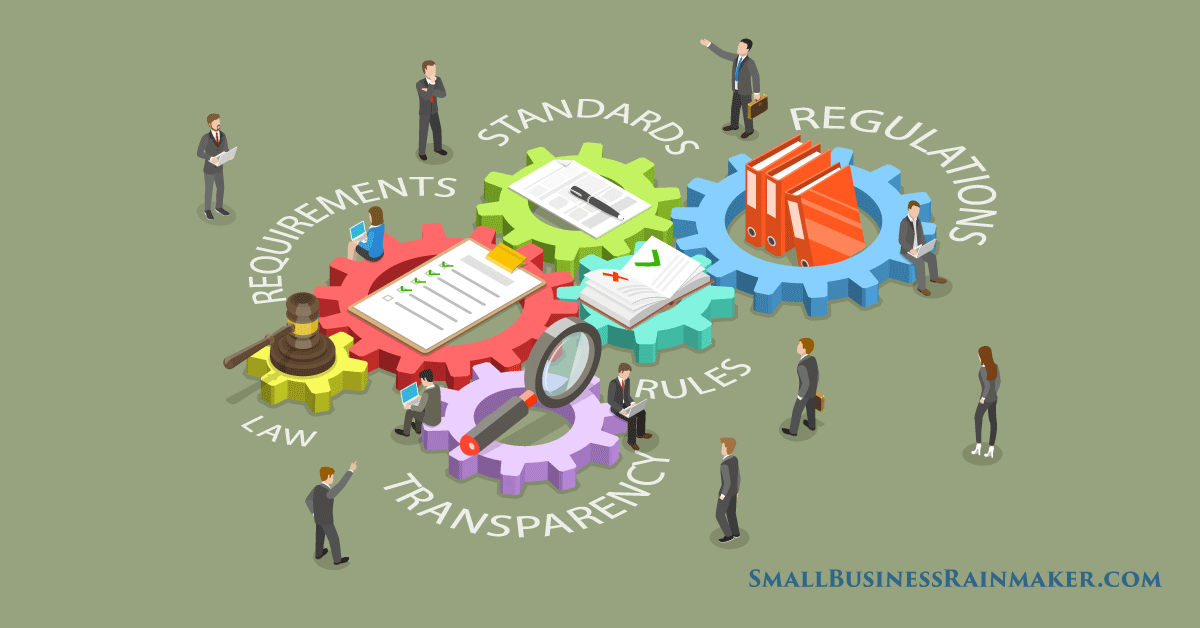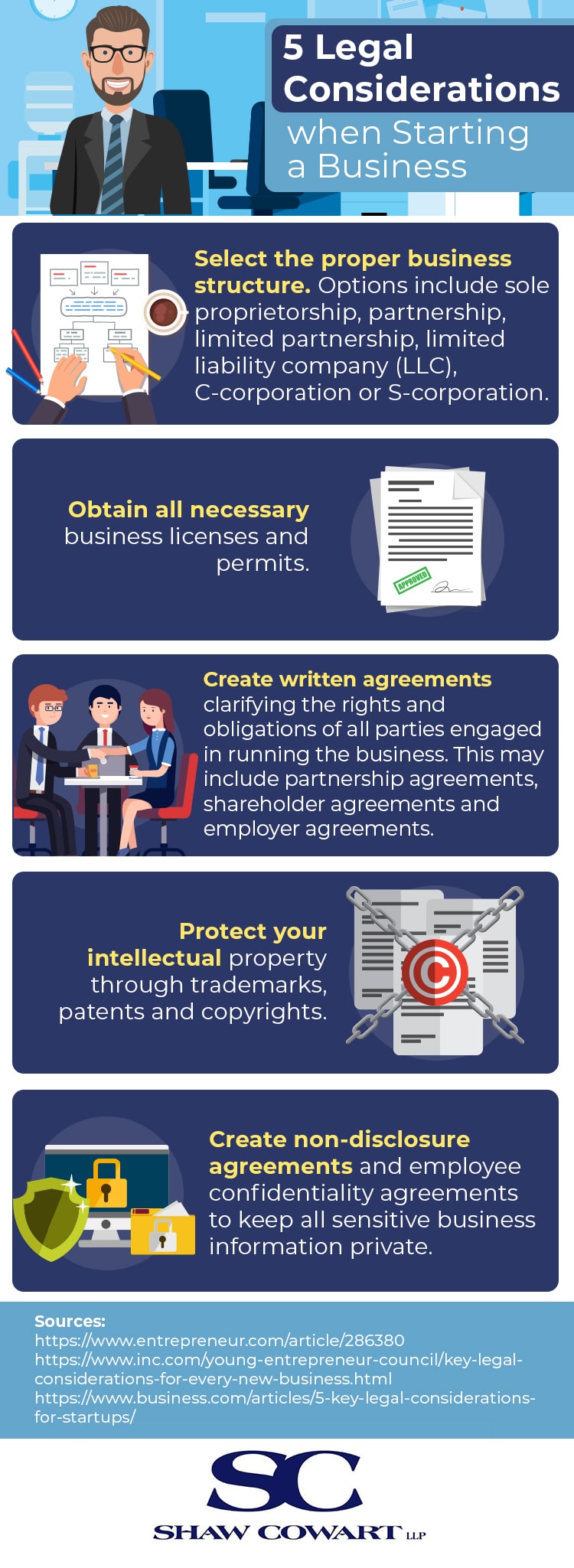Introduction to Legal Considerations for Entrepreneurs
**Launching a business comes with a plethora of legal considerations that can determine the success or failure of your entrepreneurial venture. Understanding these elements is not just prudent but essential to ensure that your business remains compliant and operates smoothly. Entrepreneurs face myriad legal challenges daily, often underestimating or overlooking critical components like business structures, intellectual property, and regulatory obligations. As a new or seasoned entrepreneur, navigating these legal aspects can be daunting, but it is vital to your enterprise’s longevity and success.

The cornerstone of any successful business is a robust understanding of the legal landscape. From selecting the right business structure to ensuring your intellectual property is adequately protected, legal considerations are woven into the fabric of entrepreneurship. Entrepreneurs must recognize the importance of forming strong legal foundations early on to avoid costly pitfalls and potential liabilities down the line.
In the United States, businesses need to comply with both federal and state regulations, which can be complex and ever-changing. Whether it is obtaining the appropriate licenses and permits, adhering to tax obligations, or drafting comprehensive contracts, maintaining compliance is key to avoiding fines and operational disruptions. The consequences of failing to comply can be severe, impacting your business financially and reputationally.
Furthermore, understanding intellectual property rights is crucial for protecting your innovations and brand. Entrepreneurs must be vigilant about securing trademarks, copyrights, and patents to safeguard their ideas and avoid legal disputes. Ignorance of these legal requirements can lead to immeasurable setbacks, and thus, knowledge in this domain acts as a shield against potential legal conflicts.

In today’s fast-paced business environment, staying informed and proactive regarding legal considerations should be at the forefront of an entrepreneur’s agenda. Leveraging resources such as the U.S. Small Business Administration can provide valuable guidance on legal compliance and help you navigate the complex world of entrepreneurship. Making educated decisions early in the process not only minimizes risk but also sets a solid foundation for future growth and innovation.
Ultimately, understanding and implementing necessary legal frameworks is a proactive step toward sustainable business success. This guide aims to illuminate these critical aspects, providing entrepreneurs with the tools and knowledge to navigate the legal landscape confidently. As you forge ahead in your venture, let legal compliance and prudence be your guiding principles, allowing your business to thrive in today’s competitive marketplace.
Understanding Business Structures
Choosing the right business structure is one of the most crucial decisions an entrepreneur will make. Not only does the structure impact day-to-day operations, but it also affects how much you pay in taxes, your ability to raise money, the paperwork you need to file, and your personal liability. Below, we dive into the four most common business structures, providing you with valuable insights to make an informed choice.
Sole Proprietorships
A sole proprietorship is the simplest and most common structure chosen to start a business. It is an unincorporated entity that is owned and operated by one person. This structure is ideal for individuals who want to maintain full control over their business.
Advantages:
- Ease of formation: With minimal legal costs and very few formal business requirements, setting up a sole proprietorship is straightforward.
- Complete control: As the sole owner, you have the final say on all business decisions.
Disadvantages:
- Unlimited personal liability: You are personally responsible for all business debts and obligations.
- Harder to raise capital: Investors are typically more hesitant to invest in sole proprietorships due to the perceived risk.
For more insights on starting a sole proprietorship, the U.S. Small Business Administration provides detailed resources.
Partnerships
Partnerships involve two or more people coming together to operate a business. There are two types of partnerships: general partnerships and limited partnerships, each with its nuances.
Key Point:
- Shared responsibility and liability: In a general partnership, each partner shares equal responsibility for the management and liabilities of the business.
Benefits:
- Access to resources: Partnerships allow for pooling of skills, knowledge, and resources, enhancing business potential.
- Tax advantages: Similar to sole proprietorships, partnerships can benefit from pass-through taxation.
Challenges:
- Joint liability: Each partner can be held liable for the actions of the others.
- Potential conflicts: Decisions must be agreed upon, which can lead to disputes.
An effective partnership agreement can help mitigate these risks by clearly outlining roles, responsibilities, and profit-sharing arrangements.
Limited Liability Companies (LLCs)
The Limited Liability Company (LLC) is a flexible business structure that provides the liability protection of a corporation with the tax efficiencies of a partnership.
Advantages:
- Limited personal liability: Owners (members) aren’t personally liable for the company’s debts or liabilities.
- Taxation flexibility: An LLC can choose between being taxed as a sole proprietorship, partnership, S corporation, or C corporation.
Considerations:
- Complexity: Setting up an LLC requires more paperwork and fees compared to sole proprietorships or partnerships.
- State-specific rules: LLC regulations and fees vary by state, influencing setup and operational processes.
LLCs are popular among small business owners due to their flexibility and protection. For comprehensive guidance, check out legal resources such as Nolo’s Guide on forming an LLC.
Corporations
A corporation is a more complex business structure, characterized by the ability to raise capital through the sale of stock and by limited liability protection for its owners (shareholders).
Pros:
- Limited liability: Shareholders are not personally liable for business debts.
- Raising capital: Corporations can obtain funds by issuing stock, making them attractive to investors.
Cons:
- Double taxation: C corporations face tax both on their income and when dividends are distributed to shareholders.
- Regulatory requirements: Corporations face strict compliance obligations, leading to higher ongoing costs and administrative duties.
Corporations are ideal for businesses that anticipate rapid growth or plan to go public. For entrepreneurs considering this path, the SEC’s Small Business and the SEC section provides valuable guidance on regulatory compliance.
Selecting the appropriate business structure is a pivotal step that influences the future success of your entrepreneurial endeavor. Each option presents distinct opportunities and challenges, and understanding these nuances will empower you to navigate the legal landscape confidently, setting a solid foundation for your business.
Intellectual Property Essentials
What is Intellectual Property?
Intellectual Property (IP) refers to creations of the mind that have commercial value and can be legally protected. It encompasses various types of rights that enable individuals and businesses to protect their innovative products, branding, and technologies from unauthorized use by others. For entrepreneurs, understanding IP is crucial as it not only safeguards their innovations, but also adds value to their business, attracts investors, and provides a competitive edge in the market. By securing their IP, businesses can better manage their assets and enhance their commercial opportunities.

Types of Intellectual Property
Understanding the different types of intellectual property is essential for entrepreneurs to effectively manage their IP portfolio. The primary types include:
- Patents: These provide protection for new inventions or processes, granting the patent holder exclusive rights to use, make, or sell the invention for a certain period, typically 20 years from the filing date.
- Trademarks: These protect symbols, names, and slogans used to identify goods and services. A strong trademark can differentiate your business in a crowded marketplace and is critical for brand recognition and loyalty.
- Copyrights: These protect original works of authorship, such as literature, music, and art. Copyrights provide creators with the right to reproduce, distribute, display, and perform the work publicly.
- Trade Secrets: These include formulas, practices, processes, or designs that provide a business advantage over competitors who do not know or use them. Keeping these secrets can be integral for maintaining a competitive edge.
According to the World Intellectual Property Organization (WIPO), understanding these categories can help businesses make informed decisions on how to protect their creative and innovative inputs effectively.
Protecting Your Intellectual Property
For entrepreneurs, protecting intellectual property is a strategic priority. Here are some effective ways to safeguard IP:
- Conduct an IP Audit: Regular IP audits can help identify existing IP assets, assess their value, and ensure they are adequately protected.
- Register Your IP: Registering your patents, trademarks, and copyrights with the relevant authorities is crucial. This formal recognition provides legal standing and deters infringement.
- Use Non-Disclosure Agreements (NDAs): When sharing sensitive information, NDAs can help maintain the confidentiality of trade secrets and other proprietary information.
- Monitor and Enforce Rights: Continuously monitor the market for potential IP infringements and take timely legal action to enforce your rights. Use online tools to help track unauthorized usage.
- Educate and Train Employees: Ensure that employees understand the importance of IP and are trained on policies related to maintaining confidentiality and avoiding conflicts of interest.
Proper IP management not only preserves an entity’s unique propositions but also maximizes their potential monetary value in future negotiations or business expansions. Protecting your IP is a proactive measure that ensures your business can thrive in a competitive ecosystem while reducing the risk of legal disputes.
Compliance and Regulatory Requirements
In today’s dynamic business environment, understanding compliance and regulatory requirements is crucial for every entrepreneur. Whether you’re just starting or expanding your business, adhering to local and federal laws, obtaining the necessary licensing and permits, and ensuring tax compliance can differentiate your venture’s success or failure. This section delves into these essential aspects of business compliance.
Understanding Local and Federal Laws
Navigating the labyrinth of local and federal laws is a significant challenge for entrepreneurs. Laws vary widely depending on the industry and location, affecting everything from business operations to employee relations. Understanding these laws is not just about avoiding fines and penalties; it’s about creating a sustainable business model. For example, employment laws, health and safety regulations, and environmental protections are critical considerations for compliance. Engaging with a legal expert or utilizing resources such as Federal Business Laws and Regulations from the Small Business Administration can provide valuable insights.
Licensing and Permits
Securing the right licensing and permits is an indispensable step in establishing your business legally. The types and numbers of required permits can depend not only on the type of business but also on where it’s located. For instance, a restaurant may need health permits, liquor licenses, and zoning approvals, while an online business will have different requirements. Failing to secure these can lead to costly delays or shutdowns. To avoid unnecessary pitfalls, research the specific licenses and permits required for your business sector and locality at the onset.

Tax Compliance
Tax compliance is another critical component of business legality. Understanding your tax obligations means learning about federal, state, and local tax requirements, which can vary greatly. This entails managing corporate taxes, sales taxes, employment taxes, and potentially more. Entrepreneurs must also be diligent in their bookkeeping and reporting to the IRS. It might be beneficial to enlist a tax professional to guide the process. Staying updated with the latest in tax reforms is advisable; the IRS Tax Center is a useful resource for business-specific tax information. Keeping transparent records not only saves you from potential audits but ensures financial clarity and operational efficiency.
In conclusion, ensuring comprehensive compliance with legal, regulatory, and tax standards is fundamental for entrepreneurs aiming for long-term success. Educating yourself and seeking expert guidance can mitigate risks and propel your business forward in a legally sound manner.
Common Legal Mistakes Entrepreneurs Make
Neglecting Contracts
One of the most common legal pitfalls entrepreneurs encounter is neglecting the importance of well-drafted contracts. A contract is not merely a formality; it is a legally binding agreement that clearly outlines the terms of a business deal, protecting all parties involved. Without a comprehensive contract, entrepreneurs expose themselves to potential disputes and financial liabilities.
Neglecting contracts can result from the misconception that small-scale transactions or informal partnerships do not require formal agreements. However, to safeguard your business interests, it is crucial to have written contracts for agreements with suppliers, clients, employees, and business partners. This practice not only ensures legal protection but also supports the clarity of obligations and expectations.

Employing a qualified attorney to draft and review contracts can avoid this costly mistake. Their expertise will ensure that all necessary legal stipulations are included, reducing the risk of future litigation. For more insights and tips on drafting effective business contracts, you can visit the American Bar Association’s guide on contract law.
Ignoring Compliance Requirements
Another critical error frequently made by entrepreneurs is ignoring compliance requirements, which are essential to maintain the legal standing and credibility of their businesses. Compliance ensures that the business adheres to local, state, and federal regulations, which govern various aspects of operation from environmental laws to tax obligations.
Ignoring these requirements not only poses the risk of penalties and fines but can also result in severe legal consequences and reputational damage for your business. Regulatory non-compliance might lead to business shutdowns or license revocations, which can be devastating for startups and growing enterprises.
Entrepreneurs must establish a system or hire experts to monitor compliance timelines and ensure all legal obligations are met systematically. Staying informed about changes in law and incorporating a compliance strategy into daily business operations can mitigate risks and support sustainable growth.
For a detailed understanding of the compliance landscape, referring to authoritative resources like the Small Business Administration (SBA) compliance guide is advisable. The key to success lies in being proactive and meticulous about the legal frameworks within which your business must operate—ensuring a secure path toward entrepreneurial achievement.
Conclusion: Navigating Legal Aspects of Entrepreneurship
Launching and growing a business is as thrilling as it is challenging. Entrepreneurs often find themselves wearing many hats, from innovator to marketer, and, importantly, to a steward of legal compliance. Successfully navigating the legal aspects of entrepreneurship ensures that your business not only grows but thrives without the shadow of legal missteps.
A robust understanding of business structures is foundational, providing clarity on liabilities, tax obligations, and operational guidelines that suit your venture’s specific needs. This knowledge is crucial to establishing a firm foundation for your business operations. Intellectual property protection, often underestimated, is integral to safeguarding your innovations and competitive edge in the market. Being proactive about your IP rights not only enhances your business’s value but also avoids costly legal disputes that can arise from infringement claims.
Moreover, compliance with regulatory requirements is non-negotiable. It’s imperative to keep abreast of changing local and federal laws, ensuring your business operates within the legal frameworks that govern your industry. Obtaining the necessary licenses and permits and ensuring tax compliance strengthen your business’s legal standing and protect against penalties and closures. For detailed insights on federal compliance, you can explore resources provided by the U.S. Small Business Administration.
Lastly, steering clear of common legal pitfalls such as neglecting contracts and overlooking compliance is vital. Contracts are not merely formalities; they are crucial legal safeguards that define and protect relationships and transactions. Regularly reviewing and updating these agreements is essential to mitigate risks and promote business integrity.
In conclusion, a commitment to understanding and applying these legal principles positions your business for long-term success, reducing risks, and ensuring a focus on innovation and growth. By actively managing and planning for the legal aspects of entrepreneurship, you equip yourself with the tools necessary to confidently build and expand your business empire. For further reading and a deeper dive into these subjects, visit our article library at WikiSearch.

